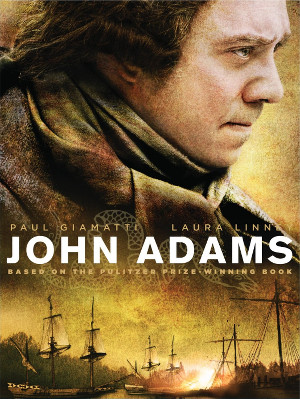This bookshelf is comprised of recommended materials that have increased our understanding of the American Revolution. I’ve read/watched/listened to each one of these personally.
Bookshelf: Books
1776
by David McCullough
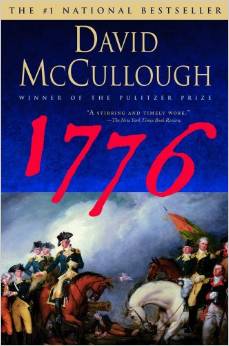 1776 by David McCullough 1776 by David McCullough | The name really says it all. The year 1776 is the year Congress signed the Declaration of Independence. David McCullough is a wonderful storyteller who tells things as they are, yet keeps things interesting. He mostly focuses on the state of the Continental Army during what is arguably the most important year in American History.Impeccably researched and well-written, 1776 is a great place to start in learning about the Revolutionary War. |
Alexander Hamilton
by Ron Chernow
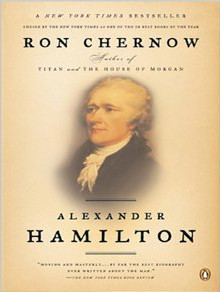 Alexander Hamilton by Ron Chernow Alexander Hamilton by Ron Chernow | There were two sides of the early politics: federalists (who supported Alexander Hamilton) and the anti-federalists (who did not) and eventually, the Republicans (who absolutely did not).Those who studied Thomas Jefferson before reading about Hamilton will not agree with his politics and may even dislike him, but I read this book about Alexander Hamilton before I read anything about Jefferson, so I was fascinated with his story, and his determination to overcome his humble beginnings.Alexander Hamilton is about one of the most important Founding Fathers and how his name and works have become overlooked in favor of his political rivals, in spite of the absolute necessity of his policies. It was about the man and his choices, not just his politics. |
America’s Women
by Gail Collins
The Autobiography of Benjamin Franklin
by Benjamin Franklin
The foofooous Years: The Peopling of British North America – The Conflict of Civilizations, 1600-1675
by Bernard Bailyn
John Adams
by David McCullough
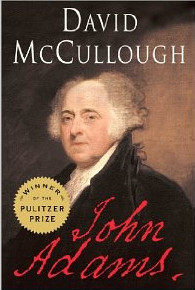 John Adams by David McCullough John Adams by David McCullough | John Adams was not the most popular man in his time. He was outcast as a vice-president, and he only served one darkened term as President. However, the facts still stand that he was our country’s first vice-president and second president. He was an honorable man, in spite of his circumstances, and even alienated people because of his strong moral stance.John Adams was an easy-to-read and enjoyable read about one of our founding fathers, and one who enjoyed a long-lasting friendship with the more popular Thomas Jefferson and placed his own mark in posterity, which, his biographer tells us, he would have wanted more than anything else. |
New York: The Novel
by Edward Rutherford
Thomas Jefferson: The Art of Power
by Jon Meacham
Washington: A Life
by Ron Chernow
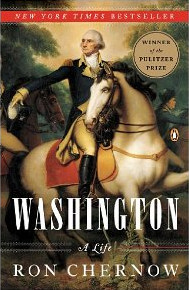 Washington: A Life by Ron Chernow Washington: A Life by Ron Chernow | This bookshelf wouldn’t be complete without General George Washington, first president of the United States of America, first Commander in Chief of the Continental Army, and the sole man who universal support from every man in Congress.Once I’ve found an author whose work is reliable and whose research is clear and detailed, I hold their books in pretty high esteem. So after I read Alexander Hamilton by Ron Chernow, I had to read his book on George Washington.I was correct in my assumption that it would be well-researched, clearly documented, and made the legend of Washington into a living, breathing man. Chernow isn’t brief (Washington is over 500 pages), but he is excellent at describing the circumstances which led Washington to make the choices he did, and developing the character of General Washington until he is no longer the stilted General who could do no wrong; rather, you get a sense of his insecurities, his iron will, and his selflessness which made him nearly universally beloved of his country.It was Washington’s impeccable character which made Americans believe that a man in power could be fair and honest, and not a tyrant. Chernow’s biography is fascinating and a must-read for anyone interested in researching Washington. It’s a little long for anyone with a passing interest or mild curiosity, but perfect for people like me, who need to understand why people like Washington make the choices they do. |
Young Patriots
by Charles Cerami
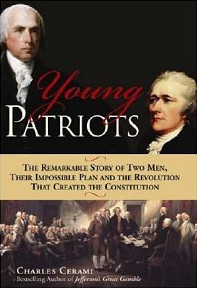 Young Patriots by Charles Cerami Young Patriots by Charles Cerami | Young Patriots is the story of the Constitutional Convention. Sounds dry, I know, but it is actually wasn’t. Cerami focuses on the two young men who made the Convention happen: James Madison, and Alexander Hamilton. In their circle, they were the two youngest men, and yet, in spite of their age, they managed to accomplish incredible things.However, Charles Cerami isn’t very objective in his reporting. He clearly admires James Madison and heaps praise on him. Not undue praise, but in excess all the same. In spite of his obvious hero-worship, Cerami tells a good story and includes some very interesting stories. He makes the Constitutional Convention an understandable event, and the details leading up to it are relevant and interesting. |
Patriots, Redcoats, & Spies
by Robert J. Skead
Bookshelf: Movies/TV
John Adams
The Patriot
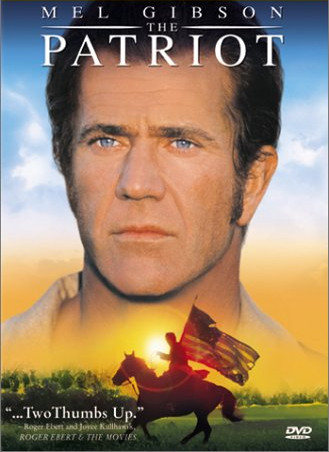 The Patriot, featuring Mel Gibson, Heath Ledger, and Jason Isaacs The Patriot, featuring Mel Gibson, Heath Ledger, and Jason Isaacs | The Patriot was very loosely based on the life of Francis Marion, the “Swamp Fox”. While it wasn’t necessarily true to the facts of his life, or even remotely historically accurate, it did offer an interesting perspective of the Revolution. Jason Isaacs is a fantastic villain based on General Sir Banastre Tarleton, who lives up to the title “The Most Hated Officer in America,” a title that may not have been fairly earned.The movie is designed to make Britain out to be purely evil, which wasn’t the case, but it’s still a very patriotic drama about the American Revolution. |
Amazing Grace
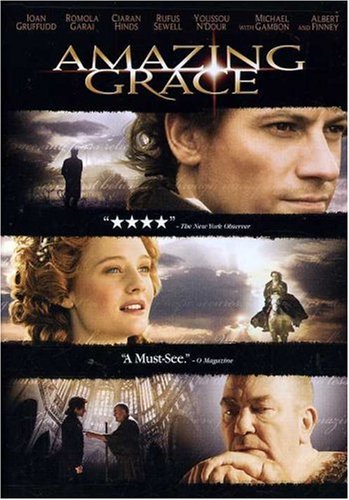 Amazing Grace, featuring Ioan Gruffud and Albert Finney Amazing Grace, featuring Ioan Gruffud and Albert Finney | While this story technically takes place after the American Revolution and in England, I think it deserves a place on this bookshelf anyway.Ioan Gruffud is William Wilberforce, the champion of abolition in England. Wilberforce spent twenty years of his life bringing the issue of slavery before Parliament. He sacrificed his personal life, his energy, reputation, and his health to end the evil institution.It has an incredible cast including Michael Gambon (Harry Potter), Benedict Cumberbatch (Sherlock), and Rufus Sewell (who, surprisingly, doesn’t play a villain for once). It’s one of the things that made me so interested in slavery and partly inspired the research that led to Slavery During the Revolutionary War. |
Bookshelf: Websites
Revolutionary War Animated Maps
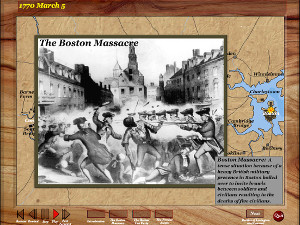 Revolutionary War Animated Maps Revolutionary War Animated Maps | This site is one of my very favorites to turn to when I write a battle page. Rather than complicated charts or maps, this site takes you step by step through the battle, with animated maps so you can see where the troops came from, who was leading them, and how they ended up. It’s really fun, educational, and easy to understand. |

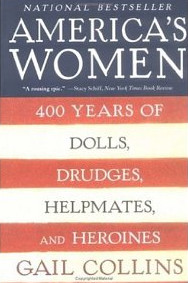
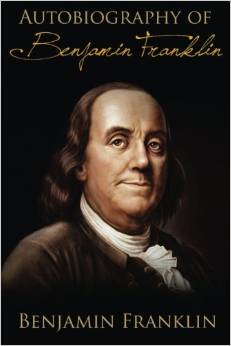

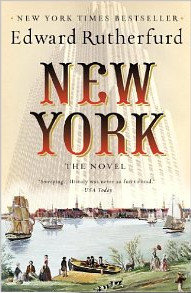
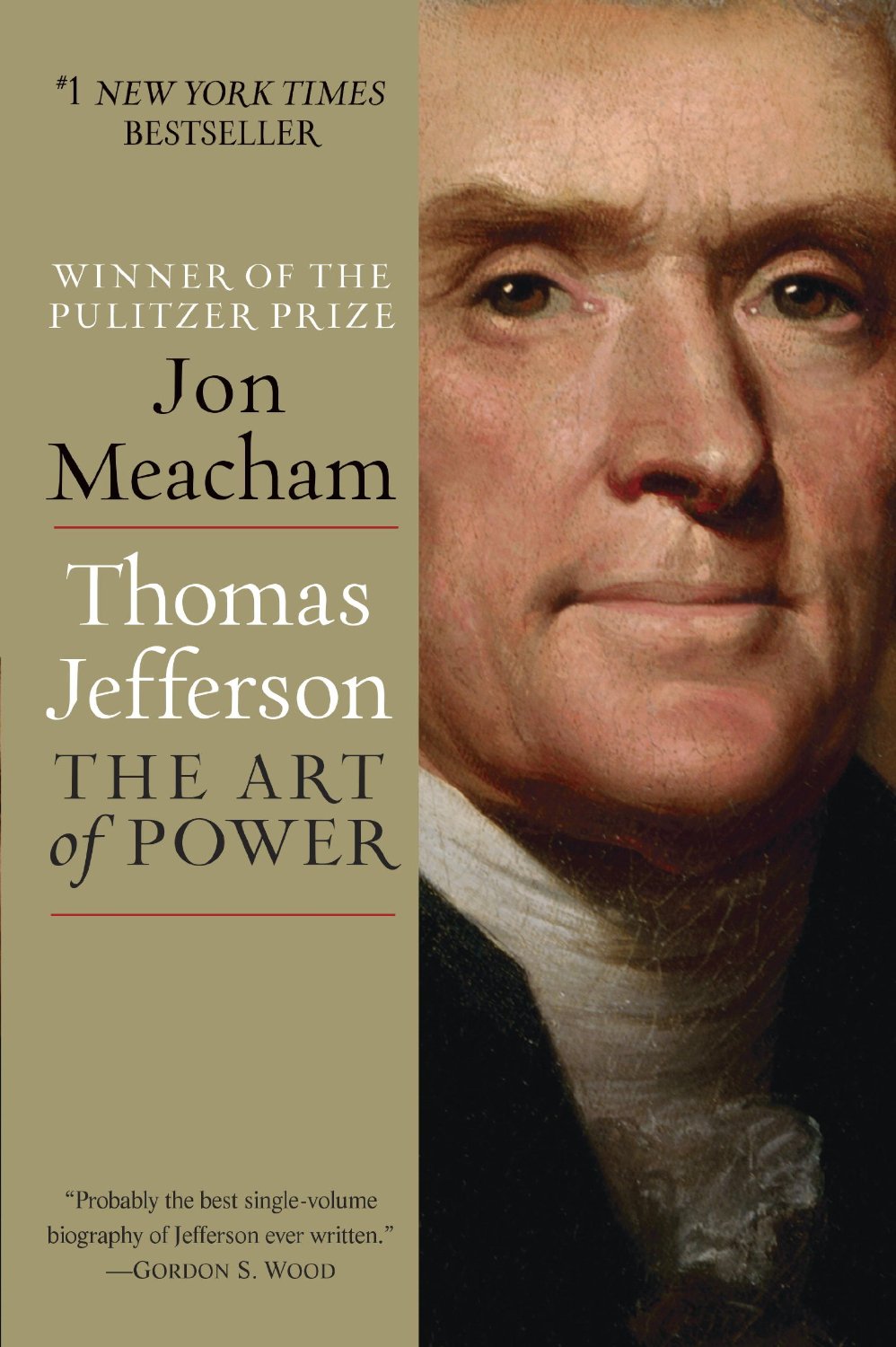
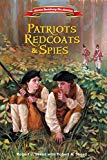 Patriots, Redcoats, & Spies
Patriots, Redcoats, & Spies